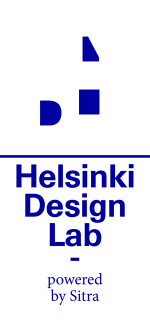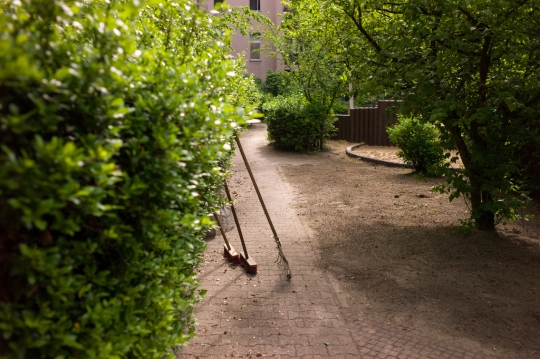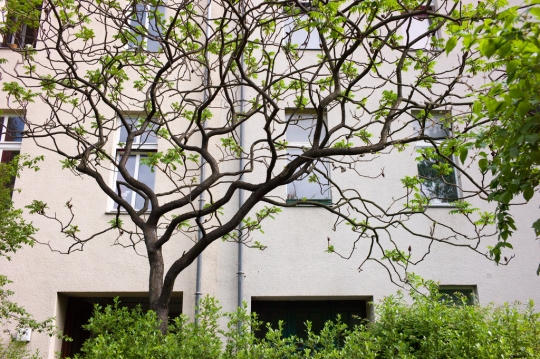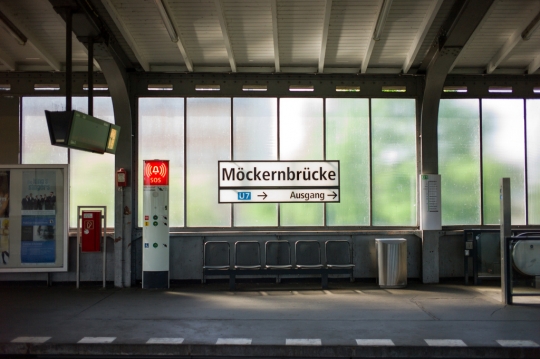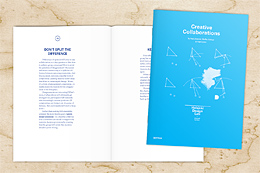What we learned in #163 is that Berlin has jumped straight to summer while Helsinki is taking its time with spring. A quick update to keep up the tempo, but not as much depth as usual because Dan and I are hosting a visit from the MaRS / WISIR / SIG in about 3 minutes! Edit: I did not make it, so this is being completed after a very good conversation with the Canadians, but you'll have to wait till next week to hear about that one.
In Week 163 Dan, Kali, and I were in Berlin to do some research for Brickstarter looking into the ways that people are working on community engagement and energy infrastructure. Separate things but deeply related, as we suspected, and as we found.
Perhaps surprisingly, amongst the many threads that tied these two together was the role of narrative. As Anna Poblocka of Eclareon put it, Germany's ability to create a narrative around the move towards renewable energy is an important part of their ability to aggressively pursue this transformation. The next day Dieter Genske expanded this notion by introducing us to the linguistics of this particular narrative which is called energiewende in German.
Use of the word "wende" connects the renewables effort with the importance and scale of another significant act, the reunification of Germany after the wall came down. This is an example of the way that we talk about a specific change helps prime conversation to be positive or negative, empowering or overwhelming, one that preferences the status quo as immutable or sees it as merely a current-state. And while linguistics is a soft topic in comparison to the significant rigidity of (current) energy infrastructure, it's a powerful bit of soft stuff. Narrative is the connective tissue of systemic change.
The Finnish experience maps onto Dieter's point very well, but in reverse. Whereas Germany has created a narrative of change-by-renewable-energy, big decisions about Finland's energy future two years ago relied on narratives of past success to rouse political will in support of maintaining nuclear and propping up traditional industries such as pulp and paper manufacturing. Today, small scale energy production in Finland is stymied by the overhead of permitting, which is designed for nuclear-scale plants, and a limited community of willing investors.
The way Robert Brückmann of Eclareon explained the German experience to date, Merkel's narrative worked in parallel with opportunities that could be acted on directly by individuals and communities. Well-designed feed-in tariffs made renewable energy a safe investment that has snowballed as more people take advantage of the opportunities in the marketplace. After two days of discussion around the growth of renewable energy I began to imagine in my head the German case as an Olympics logo of interlocking virtuous cycles: narrative and discrete opportunity, government and market, individual and community, environment and economic development, short term gain and long term security.
More on all of this in a future Brickstarter.org post but we came back from Germany with new insights into the importance of combined action on the level of large-scale cultural debate and discussion paired with discrete and delicate tinkering within the dark matter of our institutions.
Taking these findings up a level of abstraction and mapping it onto our work in Helsinki, we want to understand cultures of decision making better so that we can pursue innovation from two angles: first, by inflecting public debate towards a perspective of shared-value and shared decisions. Second, by de-risking innovative acts on an individual level.
Internally we joke about this as the glue and the tiny hammer. We're searching for ways to glue together things that have been silo'd or separated, and for ways to carefully begin to crack into big, opaque boxes (like most institutions).
While in Berlin Deiter shared his insights during a walking tour of his own neighborhood. Dan wrote it up on his site. How does he find the time to do that so thoroughly?
As a last note for Berlin, we also had a good visit with Neighborhood Labs which one of us will write up soon for the Brickstarter site. It was a compact but excellent excursion.

One of Neighborhood Labs' findings is that workshops garner a better turnout when waffles are on offer. That's a tactic I can support. Source: Neighborhood-Labs.org
Brickstarter is making its way into the wider world as well: a post at Design Observer that has a good conversation going in the comments and there's another one on the Atlantic Cities blog. We're very happy to see the discussion spreading bit by bit. More of this, please!
Quick hits:
Mike Monteiro recently wrote a good book for designers entitled Design Is A Job. It's geared for web designers, mostly, but relevant for others too. Actually, it's a useful book for anyone who is uncomfortable dealing with contracts, lawyers, management, and other business basics in the context of practice which is as much qualitative as it is quantitative.
On the other side of the Atlantic, the NYT graphics team have set up a blog that reveals their process behind some of the graphics featured in the paper and online.
This side of the Atlantic, The London Olympics have gone a bit appallingly off the deep end in an attempt to keep their sponsors happy.
Lingering in London, MindLab and Nesta have recently concluded a three month collaboration which yielded, amongst other things, a nice little video about the work they did together.
Since the audio's a bit hard to hear, a snippet from Philip Colligan:
I think we should design all public services with people, not do public service to people. So it's about changing the way we think about delivering outcomes. Not about professionals giving service to people, but defining outcomes with people, and using all the resources available to us to deliver those outcomes.
And finally, it's not often that we have the wherewithal to post here before an event happens, but we do have two events coming up next week.
Friday May 18th: Marcus Westbury, of Renew Australia fame, will be here in Helsinki to give a public talk about his work revitalizing disused parts of the city. Dan has been putting this together with Tommi Laitio of Demos. Details are on Facebook. I'm shattered to miss it, but I expect to hear all about it via Twitter.
Saturday May 19th: I will be in New York to take part in New Finnish Design City, an ICFF satellite event. Friends of HDL Q&A are curating three days of panel discussions and workshops which you can read about here. I'll be sharing a panel with Dong-Ping Wong and Colleen Macklin about using design to framing the right questions.
And in honor of Maurice Sendak who passed away this week: Goodnight, Week 163.
